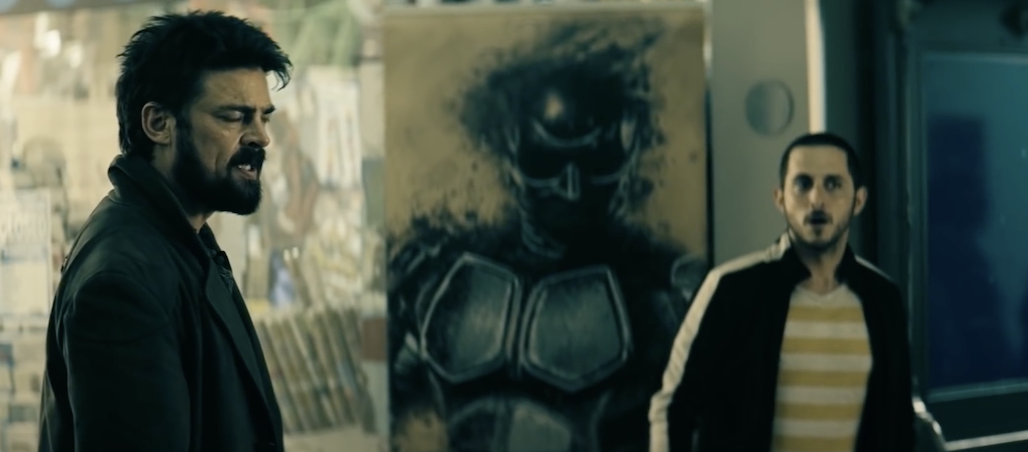Superhero fatigue is a phrase I once scoffed at, believing that I, as a major superhero fan, would never tire of the genre I grew up with. Yet, many years and superhero films later, it was becoming a creeping reality that needed to be addressed. That is not to say I have grown weary of what the likes of Marvel, for example, are doing, but rather I was in need of a breath of fresh air.
This is hardly surprising since superhero genre is certainly nothing new, with Adam’s West’s Batman in the 1960s and Christopher Reeves’ Superman in the 1970s being its most notable early entries. While there were numerous other superhero adaptations in the 1980s and 1990s (some of which are better left unmentioned), it was with the releases of X-Men, X2, Spider-Man and Spider-Man 2 in the early-to-mid 2000s that a noticeable critical and commercial shift began to emerge. Christopher Nolan’s Batman trilogy, the Marvel Cinematic Universe and numerous other X-Men entries would further evolve superhero cinema and later cement it as the genre of the century thus far.
To be sure, I revelled growing up in the golden age of superhero films, though as it happens, the golden age of television coincided with it at the turn of the century, and in the 2010s the two coalesced to produce some of the best superhero TV shows to date. Amongst an ever-growing list, Amazon Prime’s The Boys (alongside HBO’s Watchmen) might just be the crowning achievement of this marriage of medium and genre, and is worth the attention of any superhero fan yet to see it.
As is to be expected of any Garth Ennis adaptation, The Boys is a searing condemnation of various aspects of U.S. culture. Yet, any eagle-eyed Ontarian viewer would likely recognise that it is Toronto, and indeed the greater Ontario province, that once again stands in for our neighbours to the south. I even once worked in a diner in downtown Toronto where a scene in the first episode of the newly released second season was shot.
But I digress.
The Boys is set in a world where superheroes don’t just save the day, they are commercial commodities with their own brands, movies and endorsements…and a lot of collateral damage. The series focusses on a group of misfits, murderers and the disenfranchised who seek to make the most famous superhero team in the world, The Seven, answer for their crimes against humanity. Not only must they compete with superpowered beings, but also Vaught, the major corporation who essentially own The Seven and conceals their darkest secrets by any means necessary.
For dedicated DC fans, such a pessimistic approach to the superhero genre is nothing new. Suicide Squad and its upcoming sequel deal with a covert government team of supervillains, while Zack Snyder’s Batman v. Superman and the Injustice video game franchise all deal with Superman using his powers for evil. Certain comic book storylines of varying canonical import also deal with a Superman who is no longer the Boy Scout of America, but a violent, tyrannical brute who realised the world’s worst fears of him. I make particular reference to Superman because one of The Boys’ main villains, Homelander, is an intentional allusion to DC’s flagship hero, even possessing the exact same abilities as him, minus the ice breath.
In fact, almost every “superhero” (or supe, as they are called) in the show is a reference to some other DC or Marvel characters. Where The Boys sets itself apart, however, is in its bitingly satirical and unapologetically dark approach to the superhero genre and issues of celebrity, politics, sexual abuse, and even nature versus nurture in the case of Homelander, who is given surprising depth. All the while there is a devilish sense of humour that the showrunners deftly integrate into its jam-packed and often serious thematics.
There are notable comparisons that can be made with Marvel’s now defunct slate of interconnected TV shows on Netlfix, which began with Daredevil. These shows also dealt with their fair share of dark subject matter, such as Jessica Jones’ hard-hitting analysis of an emotionally and sexually abusive relationship and the trauma that can linger long after it is over. They were also strikingly violent for a Marvel production set in the MCU. Yet, one crucial mistake they made was stretching the narrative a little too thin, with each of the five main shows averaging thirteen episodes a season. Iron Fist aside, I love what Marvel did with these TV shows, especially Daredevil, but the material felt watered down at times as it visibly strained to reach that arbitrary thirteen-episode mark.
The Boys, on the other hand, features a tight eight episode arc each season and makes almost every moment count.
While only three episodes of the second season have been released thus far, the reviews have been excellent, and as someone who immensely enjoyed the first season I can vouch for its ongoing, if not elevated distinctive quality. If you are a superhero fan tired of the largely candy-cane fare of Agents of Shield and the CW’s Arrowverse (not that there is necessarily anything wrong with that), then The Boys is absolute must-watch television.

